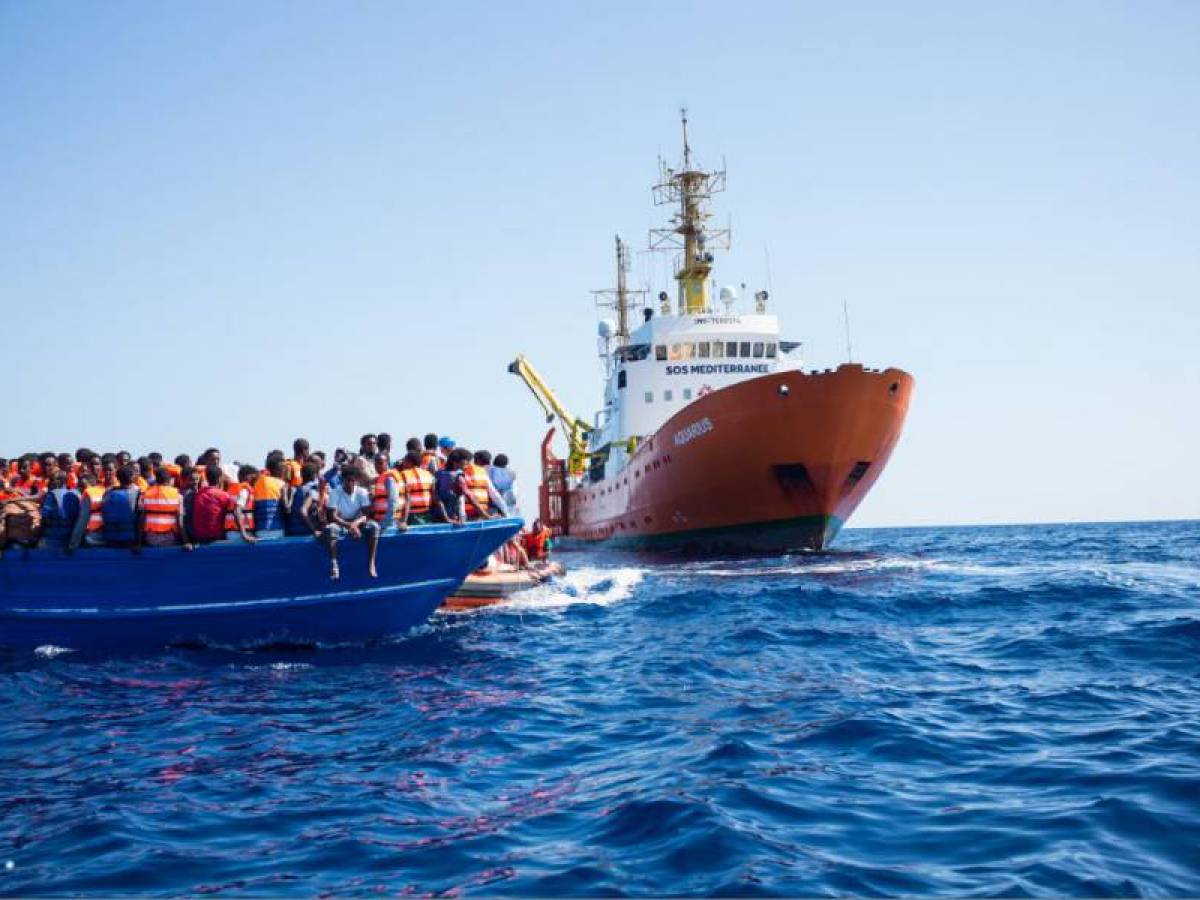with the new NGO Decree The times for secure port allocation are shortened. Saying clearly is not Matteo Salvini or Giorgia Meloni, but the Coast Guard.
He explained that “NGOs, until a few days ago, were always complaining about the times when the Italian administration, although it was not obligated to do so, granted the port of discharge or points of sale. The times were longer than ten days.” the Admiral Giuseppe OlesinoDuring the hearing of the Transportation and Constitutional Affairs Committees, which convened today in the Council in a joint session. The admiral said clearly: “By this decree, the pos (place of safety) is immediately appointed.” A rather important aspect given that it greatly affects life on board “because migrants know that they will be transferred to a home port, especially in a short time and certainly less than what happened until recently”. In fact, over the past few years, the Port Authority has had to grapple with health and safety issues: “When migrants were on board for a long time, one of them got angry,” Olesino recalls.
In short, during his speech, an expert Coastguard, not a centre-right politician, has debunked much of the “falsehood” promoted by the immigrant left and NGOs. “It does not seem to me that the ordinance we are discussing expressly prohibits multiple rescues. The rear admiral noted that if the ship, which was going to pos, encounters a unit in need of assistance, the commander must intervene as it also happens to our naval units. Secondly, Olesino denied That international law explicitly speaks of the nearest port because all the rules relate to commercial merchant ships, and in this case, “the country in which the rescue took place must provide a port that allows the ship to deviate from its course as little as possible.”
NGOs carry out activities of a different nature and must therefore comply with Italian laws. A point was also reiterated in the written report delivered to the Chamber’s Transportation Committee. After listing a series of international regulations, it concluded: “Italy is therefore not obligated, under international maritime law, to check POS demand from foreign-flagged merchant ships or NGOs permanently carrying out salvage activities outside the Italian Republic of Saar.” And in the absence of coordination from Italy. It is then substantively asserted that other European countries, in the name of the “cooperation between states” sanctioned by the Saar, cannot get rid of this problem: ” POS It must be carried out by the competent state in the Saar region where the persons were rescued in cooperation with the flag state of the unit.” Finally, the allocation of the port of discharge is a decision made by the Ministry of the Interior and endorsed or changed by the port chief’s office on the basis of certain “technical-maritime assessments.” For Geo Barents, which has a draft of 8.5 meters, to go to ports that have this depth, or if the captain of the ship represents an emergency for us, we intervene and give a different destination so that we can help it, ”concluded the admiral.
Words welcomed with satisfaction Brothers of Italy. “The Coast Guard confirms what we have always said: the NGO decree does not jeopardize search and rescue operations for migrants in the Mediterranean. Admiral Olesino made it clear that the new decree will make obtaining points of sale faster and more rational, and this to Melonian deputy Sara Kilani said she Convinced that the real aim of NGOs “is to continue escaping from any kind of control over their work.” He commented: “Now thanks to this decree this day will not be allowed.” Echoes by my colleague Fabio Raimondo, Leader of the Fratelli d’Italia Group in the Transport Committee and Rapporteur of the Decree on Organizations NGO, which clarifies: “There is no connection between a safe port and the nearest port” and “those who recover” Migrants at sea should not be forced to go to the nearest port, but to the port indicated by the Italian authorities without prejudice to those on board In any way.” And he concludes: “We are reassured that all treaties, the law of the sea, the constitution, have been respected. The decree is not against NGOs, but it gives rules that did not exist until now.”

“Reader. Travel maven. Student. Passionate tv junkie. Internet ninja. Twitter advocate. Web nerd. Bacon buff.”




